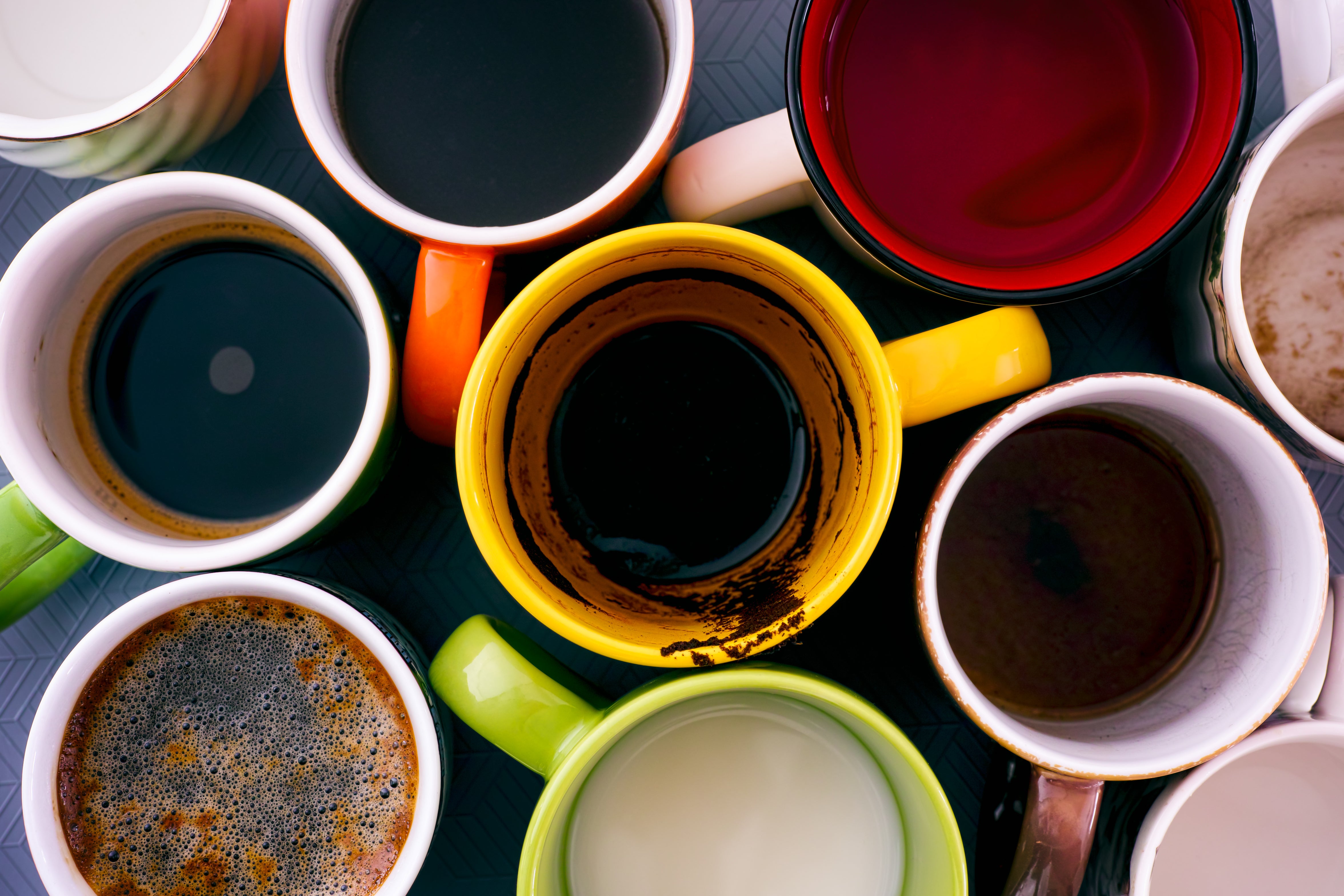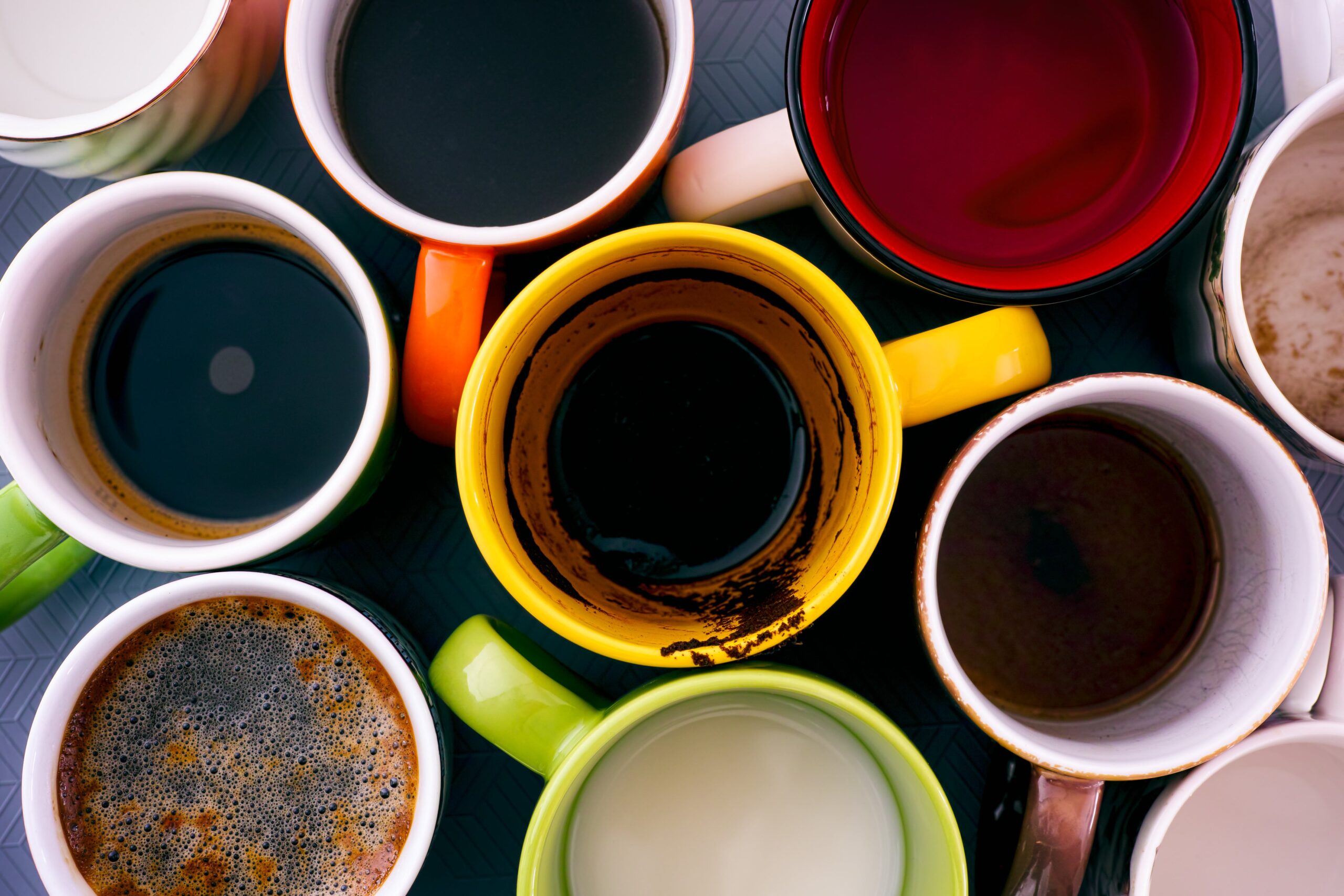
In the land of venti pumpkin spice lattes and caramel macchiatos, Americans frequently partake in caffeine fixes. In fact, most people in the U.S. consume caffeine daily, primarily in the form of coffee, tea and energy drinks. But is there such a thing as too much caffeine?
The U.S. Food and Drug Administration recommends that people consume no more than about five milligrams of caffeine per kilogram (2.2 pounds) of body weight daily, which adds up to around 400 mg for a 79-kg (175-pound) person. Although you may be able to have more without negative consequences, there is theoretically a limit to how much caffeine your body can handle. “You can certainly die from caffeine overdose,” says Jose Antonio, a sports and exercise scientist at Nova Southeastern University. Fortunately, consuming that much caffeine is really, really difficult. “We’re talking multigram doses,” in the neighborhood of 10 grams or more, he says. On average, an eight-ounce (about 240-milliliter) cup of drip coffee prepared at home contains around 100 mg of caffeine, so most people would need to consume more than 100 cups of joe in a single sitting before they started to get into dangerous territory.
The amount of caffeine in a cup of commercially brewed coffee can vary wildly, however. A Starbucks grande dark roast contains about 260 mg of caffeine, while a medium hot coffee from Dunkin’ has 210 mg. And some energy drinks can contain up to 300 mg in a 16-ounce (473-milliliter) can. Caffeine pills and powders can be dangerous if taken in bulk and should be used cautiously.
Caffeine, a central nervous system stimulant, blocks the effects of sleep-inducing chemicals, such as adenosine, in your brain. In your bloodstream, it also boosts the circulation of cortisol and adrenaline, both of which cause your heart to beat faster and your energy levels to peak. When a person consumes too much of this stimulant, they can start to feel jittery or overly excitable and may have difficulty sleeping.
Some rare health conditions can make consuming caffeine riskier. Long QT syndrome (LQTS) is a genetic condition named for the lag that it produces in the heart’s electrical activity as graphed by an electrocardiogram (ECG). It affects about one in 2,000 people. Under certain circumstances, a sudden jolt of adrenaline might cause someone with LQTS to go into cardiac arrest. “A classic example is someone diving into a swimming pool and suddenly [losing consciousness],” says Gregory Marcus, a cardiologist at the University of California, San Francisco. Because caffeine can cause a similar spike in adrenaline in the bloodstream, individuals with long QT syndrome might need to be careful about their caffeine consumption.
In September 2022 a college student with LQTS ordered a “charged lemonade” from the chain restaurant Panera Bread. That product contains between 260 and 390 mg of added caffeine, according to the company. After drinking the beverage, she went into cardiac arrest and died. In October 2023 her family filed a lawsuit against Panera for failing to adequately disclose the drink’s caffeine content. The company has since enhanced its caffeine labeling “out of an abundance of caution,” said a Panera spokesperson in a statement to NBC News. Marcus says this type of situation is exceedingly rare, however.
Caffeine is addictive but not in the way that comes to mind when people think about most substance use disorders. “Someone can be physically dependent on caffeine and not have what we consider problematic use,” says Laura Juliano, a psychologist at American University, who studies caffeine use, among other topics. But if you decide to wean yourself off caffeine, you may want to do it gradually. Withdrawal symptoms can include headache, fatigue, inability to concentrate and occasionally flulike body aches. These symptoms are usually mild, although they can be more severe for some individuals. “I have heard many stories from people who thought they were sick, but it turned out to be caffeine withdrawal,” Juliano says.
The American College of Obstetricians and Gynecologists recommends that pregnant people limit their caffeine consumption to about 200 mg (about two home-brewed cups of coffee) a day or less. Too much caffeine might also trigger panic attacks in people with anxiety. Some people might choose to limit their intake for this reason. The exact dose for inducing jitters varies, however, depending on a person’s caffeine sensitivity and current stress level. There is a genetic component to caffeine tolerance—in particular, a gene called CYP1A2 determines how fast (and how thoroughly) a person’s body metabolizes the drug. People with the “slow” variant of the gene are considered more sensitive to caffeine’s effects.
For most people, though, caffeine is safe in moderation. And it can even be beneficial. Contrary to popular belief, Marcus says, there is some evidence that people who use caffeine daily may have a lower risk of arrhythmias, or irregular heart rhythms that can lead to cardiac arrest. Based on his research, people who consume it tend to be more active, taking approximately 1,000 additional steps per day, on average, compared with nonusers. A large body of research has also demonstrated that caffeine can improve athletic performance. Other studies suggest that drinking coffee could reduce the risk of mouth or throat cancer, though this may or may not be a direct result of the caffeine.
So unless you’re avoiding caffeine for a specific health, religious or other personal reason, go ahead and enjoy your lattes.
